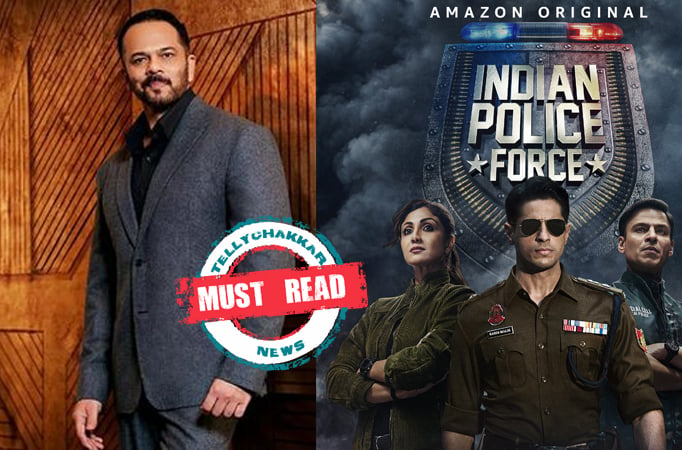
MUMBAI : A memorable movie title is crucial to drawing in viewers as well as succinctly summarizing the core of the picture. The title of Rohit Shetty's first over-the-top (OTT) experiment, Indian Police Force, may also act as a first-move tactic to immediately capture the audience's imagination, but there is a problem: Indian police of independent India are not a "force," but a "service." Vidhu Vinod Chopra's 12th Fail, which successfully highlighted the struggle of an aspirant to become a police officer, has made a successful impact.
The police were seen as a means of oppression, force, and instilling terror among the common people throughout the British colonial era. In a previous interview, former Uttar Pradesh DGP Vikram Singh said, “Let me take you back to the year 1861. The Police Act of 1861 was programmed and designed to make the police an instrument of exploitation of the masses. The legacy of being repressive and extortionist was accompanied by lower salaries. So, corruption, unfortunately, got associated with the police service. It is often said, ‘Bad acha, Badnaam bura’ (A bad man is better than a bad name). We have inherited that reputation.”
In a previous interview, IPS Renuka Mishra, the DG/Chairperson of the UP Police Recruitment and Promotion Board, discussed the police uniform as a sign of authority.
“It is true, due to historical reasons, that the Indian police have always been seen as a symbol of power, force, coerciveness, and essentially the strong arm of the state instead of the strong arm of the law. Kings were replaced by the British and then in a democracy by the state. During British rule, barring the Superintendent of Police, who was British, the rest were Indians and were used by the British Raj to keep the public in check and in forced compliance with their directives, many of which were detrimental to the person, property, and dignity of the public. Some of the extreme sections of law being questioned today as colonial legacy were used by Indians in the police against fellow Indians at the behest of the British rulers. This laid the foundation for the police ethos and subculture. It will need considerable reform to shed this. Hence the khaki suffers from this legacy and was able to create a positive image in the minds of citizens of independent India possibly only in crises like disasters and pandemics”, says Mishra.
One of the three All India Services of the Indian government is the Indian Police Service, or IPS. The Indian Police Service took the role of the Indian (Imperial) Police in 1948, one year after India won its independence from Britain. It was established following section XIV of the Indian Constitution, Article 312 (2).
The Indian Police Services (Central) Association's website perfectly captures the essence and letter of the idea of "service", “The Indian Police Service is not a force itself but a service…”. The phrase "Satya, Seva, Suraksha" is the most significant motto of the Sardar Vallabhbhai Patel National Police Academy in Hyderabad. (Reality, Assistance, Safety).
As a reminder to the Indian police that they may carry out their responsibilities with integrity if they have the spirit of "service" to their country and its people, "service" in this context refers to a departure from the colonial legacy of "force."
Similar to book titles, movie titles inevitably leave an impression that could have a direct impact on viewers' feelings and psychology. Therefore, it becomes crucial to pick them carefully, particularly if they have a long evolutionary history and if the position encourages many young people to pursue it. This is especially true in a nation like India where thousands of applicants aspire to become IPS officers each year. So, even with their titles, movies that are regarded as inspiration must be morally correct.
IPS retiree According to Vikram Singh, “The images of police officers portrayed in cinemas including in Dabbang and Singham are not the real images of a police officer. Nor are they what some officers on social media show it to you. That shouldn’t inspire you.”
To sum up, Rohit Shetty's decision to use the term "force" in the title of his new series may fit with his style of filmmaking, but it does not align with the values of the Indian Police "Services."
For more news and updates from the world of television, OTT, and movies, stay tuned to TellyChakkar.
Credits – The Indian Express


















Add new comment